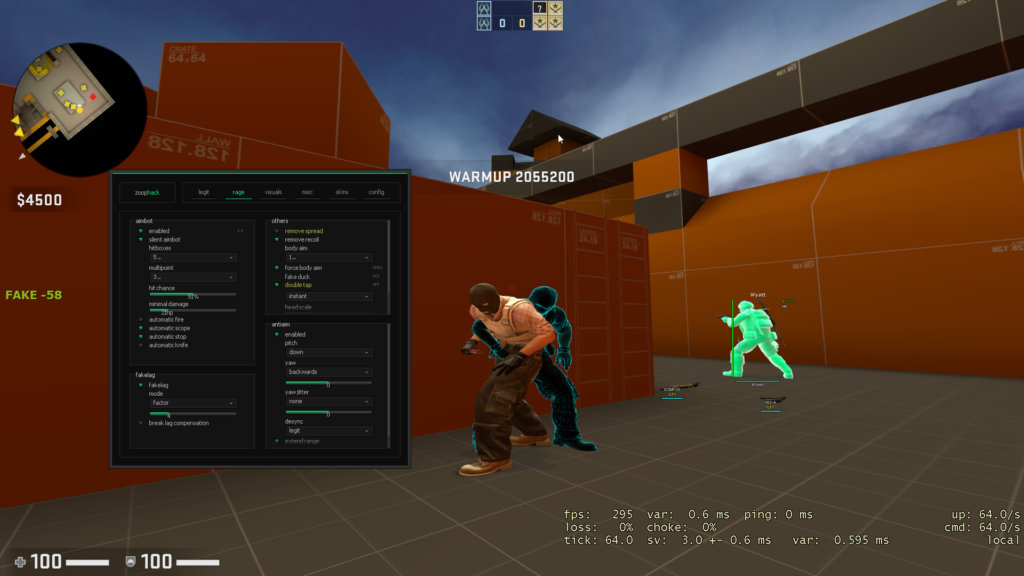
Game hacks and cheats are often seen as the bane of a developer’s existence, wreaking havoc in online communities and ruining the carefully crafted balance of gameplay. Yet, behind the scenes, some developers have a surprising appreciation for hacks. The tension between creating a stable, cheat-free environment and acknowledging the value of hacking can lead to an interesting dynamic. In some cases, hacks—even the controversial Rust cheats —can push the boundaries of game development in ways that are both innovative and beneficial.
Hacks Drive Innovation and Improvement
One of the biggest reasons developers may have a quiet appreciation for game hacks is their impact on innovation www.infocheats.net. When hackers exploit game mechanics, they often expose weaknesses or gaps in the code that developers might have overlooked. By shining a spotlight on these vulnerabilities, hackers inadvertently help improve the game’s infrastructure.
For instance, in a game like Rust, cheats often highlight areas where the game’s security can be tightened. Wallhacks or aimbots reveal weaknesses in the client-server communication, giving developers the chance to strengthen the code and prevent further exploitation. Without the actions of hackers, some of these flaws might never come to light, leaving games more vulnerable to future issues.
Developers are always in a race to build the best and most secure experience for players. The knowledge gained from combating Rust cheats, for example, doesn’t just improve one game—it can enhance the company’s entire approach to game development. By learning from these challenges, developers can create more robust and resilient games in the future.
Hacks Lead to Better Player Behavior Systems
Hacks and cheats can also prompt developers to refine their approach to player behavior systems. When cheaters run rampant in multiplayer games, it creates a toxic environment, driving away honest players. However, in response to these disruptions, developers are forced to come up with new ways to detect, discourage, and punish bad behavior.
Consider the widespread use of Rust cheats. These hacks disrupt the balance of the game, often leaving legitimate players frustrated and disillusioned. But for developers, this frustration is a catalyst for building smarter anti-cheat systems and fairer matchmaking algorithms. This not only enhances the experience for honest players but also discourages cheaters from returning, knowing they’ll face harsher consequences.
Some developers even experiment with creative punishments for hackers. For example, some games create isolated servers where cheaters are only matched with other cheaters. This not only keeps them from ruining the experience for others but also gives developers a unique testing ground to observe how cheats evolve in a competitive cheater-only environment. It’s a curious feedback loop where the existence of cheats helps improve the system for everyone.
Cheating as a Form of Player Expression
Another reason why developers may secretly appreciate hacks is that they reveal the creativity and desire for control among players. Some hacks aren’t just about winning or gaining an unfair advantage—they’re about bending the game’s rules to fit a player’s personal vision. For example, Rust cheats often allow players to experiment with different aspects of the game world, creating unique, and sometimes chaotic, experiences.
For single-player games, hacking can be a way for players to explore content in ways that weren’t initially intended. While this may run counter to the developer’s original vision, it can lead to unexpected forms of player engagement. Some developers, recognizing this, embrace the modding community and offer support for these types of creative hacks. Although not every game is as open to modification, many developers see the value in fostering a community that is passionate about altering the game.
In this sense, hacks and cheats can be seen as a form of user-generated content. When players manipulate the game to suit their personal preferences, it reveals an untapped potential for new modes, mechanics, or features that developers might have overlooked. This level of player engagement, while not always constructive, shows just how deeply players care about and are invested in the game.
Learning from the Hackers’ Perspective
Developers sometimes find it beneficial to see the game through the eyes of hackers. By understanding how cheats like Rust cheats function, they can gain valuable insight into how their own systems work—or don’t work. This knowledge can lead to improved game mechanics, more immersive environments, and better tools for player interaction.
In some cases, developers have even been known to hire hackers or consult with individuals who create cheats. This may seem counterintuitive, but these individuals possess a deep understanding of the game’s code and mechanics, often identifying weak points that even the best testers may miss. By leveraging the expertise of hackers, developers can enhance their games in ways that traditional testing methods might not uncover.
Moreover, developers learn how players might subvert the game’s rules and mechanics, which helps them design more engaging challenges. By anticipating how players might attempt to cheat or exploit the system, they can preemptively build smarter, more compelling games that keep players engaged without the need for cheats.
When Cheating Becomes Part of the Game’s Identity
In certain cases, cheats become part of a game’s culture and identity. Some games, particularly older titles, thrive on the fact that players use cheats to unlock hidden content, break traditional rules, or push the boundaries of what the game allows. For these communities, cheats are a core part of the experience, and developers acknowledge this by leaving certain exploits in place or even adding in-game cheat options themselves.
Though not directly related, Rust cheats have evolved as a conversation piece within its community, where players debate the ethical and gameplay implications of hacking. Even in multiplayer games where fairness is key, the existence of cheats creates a dynamic between players and developers that can fuel discussion, innovation, and a more involved gaming culture.
Conclusion
While cheats and hacks, such as Rust cheats, are often seen as the enemy of fair play, some developers have come to appreciate the value they bring to the table. From improving security and creating better anti-cheat systems to learning more about player behavior and creativity, hacks can have a surprising positive influence on game development. Far from being a one-sided battle, the relationship between hackers and developers is complex, and in some cases, mutually beneficial.







